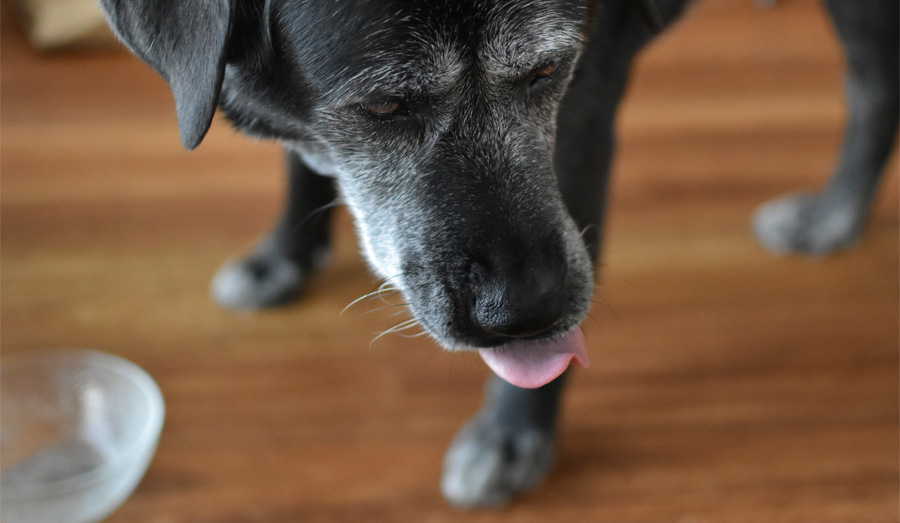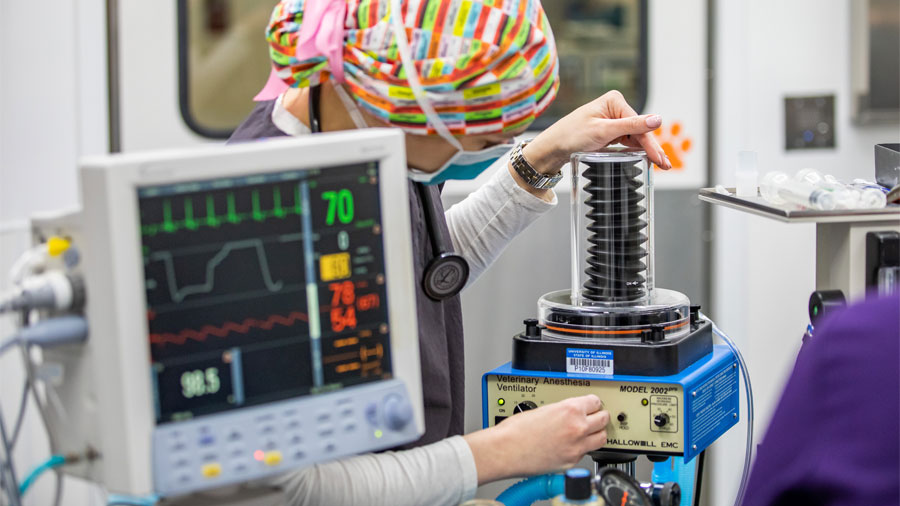‘Think of bacteria as our friends’
Dr. Patrick Barko has spent the past three years studying a rapidly evolving field that he believes will soon be at the forefront in the prevention, diagnosis, and treatment of disease for people and pets.
“For most of modern medical history, bacteria were treated as enemy invaders that needed to be eliminated from the body. I think it is time to redefine our relationship with our microbiome,” asserts Dr. Barko, a veterinarian who is completing a residency in small animal internal medicine and seeing patients at the University of Illinois Veterinary Teaching Hospital in Urbana.
A Diverse—and Large—Microbial Community
Dr. Barko defines the gastrointestinal microbiome as “a highly diverse community of microorganisms, primarily bacteria, that inhabit the intestinal tract.” And it is a very large community: there are trillions of bacteria living in a person’s intestinal tract, far outnumbering the human cells that make up the person’s entire body.
We are in the very early stages of investigating the microbiome. As more is learned about these therapies, they will become more focused and effective.
Dr. Patrick Barko
At birth, mammals do not have an active bacterial microbiome. However, bacterial colonization of the gut, respiratory tract, and skin starts immediately, beginning with bacteria from the mother’s bodily fluids and skin and the newborn’s environment. During infancy, the developing microbiome is highly unstable and changes dramatically over time. Eventually, the microbiome matures and becomes a stable adult population, unless inhibited by factors such as malnutrition or illness.
“If you compare two individual animals, you will find that there are substantial differences in their intestinal microbiomes. Each animal seems to have its own unique microbiome,” explains Dr. Barko. “However, animals that live together and have similar diets will have microbiomes that share common features. Studies have found that people and their pet dogs develop similar microbiomes.”
Microbiome’s Role in Health
Research has also documented that the intestinal microbiome plays a big role in an individual animal’s health. Bacteria in the gut assist in the digestion of nutrients, synthesize vitamins, prevent infection, impact the immune system, and promote the development of several organ systems, including the gastrointestinal tract and brain.
In fact, the intestinal microbiome influences virtually every tissue in the body. Studies have shown associations between the intestinal microbiome and obesity, diabetes, heart disease, autoimmune disorders, autism, schizophrenia, and a variety of other diseases in humans and animals, according to Dr. Barko.
Given the health implications of an individual’s microbiome, researchers are working to find medical treatments that use the microbiome. Such therapeutic approaches currently in use include diet, probiotics, antibiotics, prebiotics, and fecal microbiome transplantation. These treatments are typically used for gastrointestinal disorders at present, but there is the potential for treating non-intestinal diseases with them.
He also notes that most of these treatments have varying degrees of effectiveness. “We are in the very early stages of investigating the microbiome. As more is learned about these therapies, they will become more focused and effective,” predicts Dr. Barko.
An Exciting Future for Microbiome Medicine
Among the most popular and widely available at present are probiotics, which are supplements containing live bacteria that transiently colonize the intestinal tract to exert beneficial effects. When used appropriately in dogs and cats probiotics can strengthen the immune system, regulate the microbiome after disturbance from antibiotics, and reduce gas, bloating and flatulence, among other things. However, the quality of probiotic supplements and their effects are highly variable.
“I recommend products from reputable manufacturers that are active in research, development, and quality control. Your veterinarian can help you to identify these products for your pets,” says Dr. Barko.
While scientists and clinicians continue the quest for therapies involving the microbiome, Dr. Barko urges pet owners to change the way they think about this emerging field.
“We should think of bacteria as our friends and companions. Many people find it disturbing to acknowledge, but that fact is that we have all been covered with bacteria from the moment we were born,” he says. “These ‘bugs’ help us in innumerable ways. I am excited for a future in which we can work with our microbial friends to diagnose, treat, and prevent animal diseases more effectively targeting the microbiome.”
By Hannah Beers

![[microbiome dog illustration]](https://vetmed.illinois.edu/wp-content/uploads/2021/04/pc-barko-microbiome.jpg)


